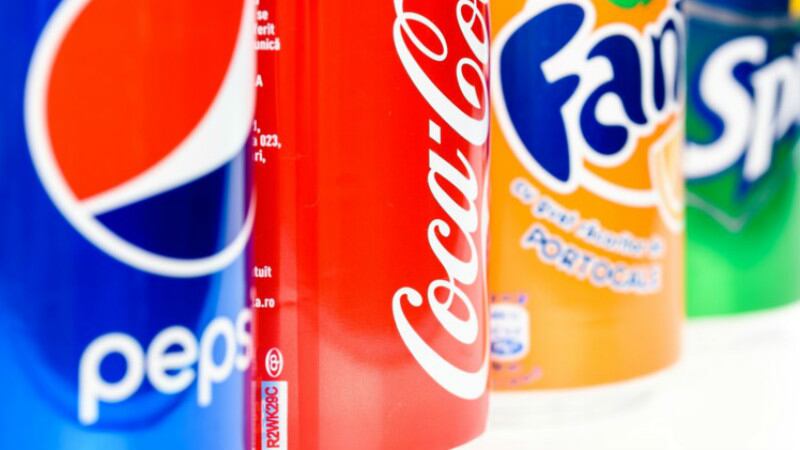The Ministry of Health (MOH) announced at the Singapore Health & Biomedical Congress 2019, that these two measures were set to encourage consumers to make more informed choices, as well as accelerate the industry reformulation efforts in reducing sugar content in SSBs.
This decision came after reviewing international and local evidence for these measures, and taking into consideration 4000-public respondents’ feedback conducted earlier this year.
Daniel Hunt, an independent health policy consultant and a keynote speaker at our Healthy Ageing APAC Summit, commended the measures by the Singapore Government: “Sugar-sweetened beverages have no place in our diets. More than 40 countries around the world have placed levies on sugary drinks, and the evidence base is crystal clear that taxes can improve nutrition and health.
“We are glad the Singaporean Government has shown willingness to learn from international precedent and kept taxing high-sugar drinks on the table. Across these measures, they are showing admirable leadership to recognise what we eat should nourish and sustain us - not make us sick,” he said.
Sweet lifestyle
According to the Health Promotion Board’s (HPB) survey in 2018, Singaporeans on average consume 12 teaspoons or 60g of sugar daily, and more than 50% of this comes from SSBs.
“This is a concern as an additional 250ml serving of SSB per day would increase the risk of diabetes by up to 26%,” stressed Edwin Tong, the Senior Minister Of State, Ministry of Health.
SSBs are defined as drinks containing added sugar and juices with naturally occurring sugars. Examples include Asian drinks, soft drinks, malted drinks, juice drinks and juices, cultured milk/ yoghurt drinks, and 3-in-1 or 2-in-1 instant beverages.
Visual measures
The graded, colour-coded front-of-pack nutrient-summary label will provide consumers with quick, at-a-glance information on the nutritional quality of the product, particularly on the sugar content, sugar level, and percentage ratio in the SSB.
The SSBs will be assigned a summary grade based on their nutritional quality. As of now, the label will be mandatory only for less healthy SSBs.
MOH will also introduce an advertising prohibition of product advertisements for the least healthy SSBs (e.g. those that receive the poorest front-of-pack label grade) on all local mass media platforms, including broadcast, print, out-of-home and online channels.
This is aimed to reduce the influence of such advertisements on consumer preferences.
MOH said under the new nutrient summary label, healthier SSBs can receive a positive grade, and it is up to the manufacturers to decide whether they want their products to bear the label.
They will nonetheless encourage manufacturers to label healthier SSBs as well, to aid in consumer decision-making, and this can also continue to be advertised.
The next steps for MOH and HPB are to conduct consumer focus group discussions on the label design, and obtain feedback from the SSB and advertising industries, which will be detailed in 2020.
Industry response
Matthew Kovac, the executive director at Food Industry Asia (FIA), voiced a concerns around the criteria in defining less-healthy SSBs.
“It would be important to ensure that the nutrition profiling model used to define less-healthy to least-healthy SSBs is backed by sufficient scientific evidence and implemented in consultation with the industry and public to ensure support of this system at the national level,” he stressed.
He also said that a complete advertising ban on the least healthy SSBs may not be proportionate as a policy measure: “The implementation of this would mean stricter regulations for SSBs than that for alcohol, which is hugely disproportionate.”
He added that an advertising ban could go several ways, for instances, companies could respond to the ban by lowering prices and increasing product demand.
Consumers may also choose to switch out of the product market, choosing to substitute with other less healthy, freshly-made beverages with a very high sugar content that are already available in the market, making the intended effects of an advertising ban negligible.
Reformulation efforts
Thomas Hayes, analyst at Lux Research told FoodNavigator-Asia that beverage manufacturers should already be developing or thinking about reformulation given the new measures.
“For beverages, replacing bulk is not a major concern compared to foods (e.g., baked goods), so having a sweetener that only requires a low dosage is acceptable,” he said.
While the substitution of sucrose with high-intensity, non-nutritive sweeteners like aspartame or acesulfame potassium is a short-term fix, it will face growing negative consumer and health concerns.
Hayes said, “Naturally-derived sweeteners from plant sources like stevia and monk fruit should be explored as alternatives, though taste, cost, and formulation challenges remain.”
Besides ingredients, Hayes explained processing was another avenue for manufacturers to explore, “either through filtration or fermentation, although they require a lot more R&D, it comes with the benefit of not introducing any new ingredients.”


